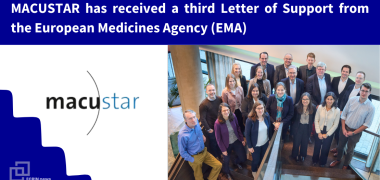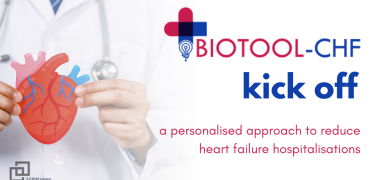Press release: Hospital Clinic-IDIBAPS Coordinates a European Project to Obtain a Functional Cure for HIV with Immunotherapy
The August Pi i Sunyer Biomedical Research Institute (IDIBAPS) and the Hospital Clinic of Barcelona lead a European project aimed at changing the current paradigm of HIV treatment by obtaining a functional cure. The main goal is to control HIV replication over long periods of time or throughout life without antiretroviral treatment. Dr. Felipe Garcia, senior consultant at the Infectious Diseases Department at Hospital Clínic and researcher on the IDIBAPS team on Infectious Diseases and AIDS, coordinates this study called HIVACAR. This initiative is part of the European research and innovation framework programme Horizon 2020, has a total budget of 6.7 million euros and 14 institutions will participate, including clinical and research centres and European companies. In Spain, the other participating institutions are the IrsiCaixa AIDS Research Institute, the National Center for Biotechnology (CNB-CSIC) and the Faculty of Economics and Business Sciences of the Complutense University of Madrid (UCM).
ECRIN is providing trial management support services to the HIVACAR project.
According to the World Health Organisation (WHO), 37 million people in the world are living with HIV and there are more than 2 million new infections each year. Although there are several prevention strategies that are effective, they are difficult to maintain in the long term. Achieving a functional cure would cause patients to become carriers of the virus at undetectable levels, and although prevention measures would still be necessary, the risk of transmission would be minimised.
In order to achieve this functional cure, the HIVACAR project proposes the administration of a combination of immunotherapy that includes therapeutic vaccines (one of them customised for each patient to avoid the capability of the virus to escape from the vaccine), a potent antibody with the capacity to neutralise the site of binding of the virus with the cells that it infects, and a latency reversing agent, that is, a molecule with the ability to unmask the virus. It will be done within the framework of a Phase II clinical trial to test the combination’s safety and tolerability. It will be determined whether this combination is capable of activating the immune system mechanisms necessary to remove infected cells from the latent viral reservoir. The socioeconomic and psychosocial impact of this treatment will also be analysed.
"The functional cure of HIV is one of the main challenges in the fight against HIV and the HIVACAR project aims to improve the quality of life of patients and also contribute to a reduction of the current costs related to the treatment of HIV", explains Dr. Felipe García.
The kick-off meeting of the project was held in Barcelona on 23 and 24 January. "At the moment," points out Dr. García, "in order to facilitate the rapid start of the clinical trial, we have initiated preliminary regulatory procedures. In addition, previous experience with three of the products used and the manufacture of several personalised vaccines will help to start the study in five centers in four European countries”.
![]() HIVACAR has received funding from the European Union’s Horizon 2020 research and innovation programme under grant agreement no. 731626.
HIVACAR has received funding from the European Union’s Horizon 2020 research and innovation programme under grant agreement no. 731626.





